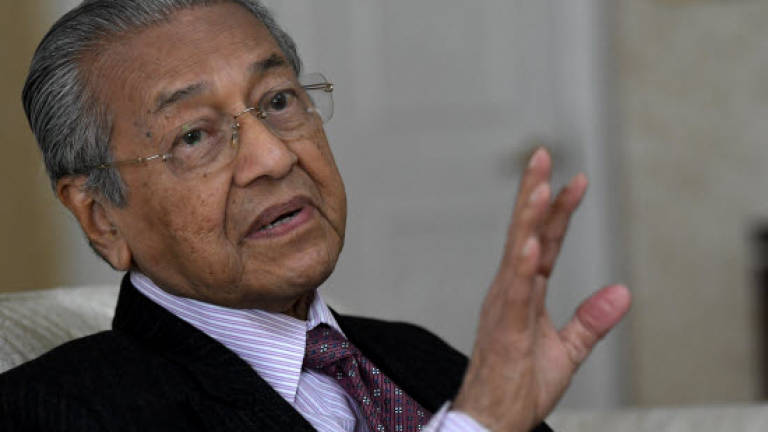True development leaves no one behind: Tun M

KUALA LUMPUR: True development must contribute to the development of Bangsa Malaysia with no groups feeling they are marginalised from the mainstream, says Tun Dr Mahathir Mohamad.
"Development must also not leave certain states or regions behind," the Prime Minister said when tabling the Mid-term Review of the 11th Malaysia Plan (2016-2020) at the Dewan Rakyat today.
Mahathir said the document reflects a new shift in development thinking.
"We no longer see development merely in terms of economic growth or gross domestic product (GDP).
"We now see development from the aspect of the people's purchasing power, and all people should benefit from development, or "shared prosperity".
"This means an income gap that is not too wide between the poor and rich as well as between racial groups," he said.
He said as continued and equitable economic growth needs a robust non-economic environment that is free of political interference, the administration should be free of corruption and power abuse so that no quarter can rob the country's wealth.
Mahathir added that the 11MP Mid-term Review offers a shift and adjustment to medium-term policies and strategies while the short-term national development strategies will be tabled in Budget 2019 on Nov 2, 2018.
On the economic performance for the first two years of the 11MP (2016-2017), he said the country's GDP expanded by 5.1% annually amid an average inflation rate of 2.9%.
The growth was driven by robust private aggregate demand, supported by private investment and consumption.
Per capita Gross National Income (GNI) at current prices meanwhile rose by an average of 6.7% annually from RM36,119 (or US$9,248) in 2015 to RM41,093 (or US$9,556) in 2017.
With regards to purchasing power parity (PPP), Malaysia's GDP per capita has hit US$28,650 as estimated by the World Bank, putting the country in the top 25% among 217 nations.
Based on the World Bank's definition of high-income economies as those with a GNI per capita of US$12,056 for 2017, Malaysia has to narrow a 21% income gap in order to be classified as a high-income nation.
This growth rate is generally accepted as among the best in the region.
"However, what is more meaningful is who benefits from the economic growth in terms of income.
"Over the last decade, owners of capital have benefited the most from this growth," he said.
There is also an obvious income disparity between high-skilled workers and less-skilled ones, he said, noting that most of the people have not benefited from the economic growth.
On the practice of off-budget allocations, he said: "If debts, expenditure, loss of billions of ringgit are taken into account, the nation's financial situation is not as good as the figures stated above." — Bernama